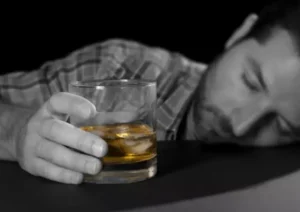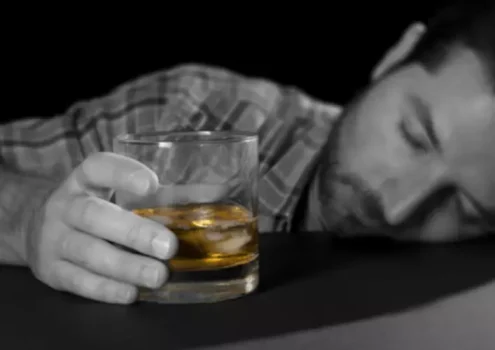
Bourbon and whiskey both have more congeners because they are less heavily distilled which preserves the congeners from the fermented mash. This could be a reason why they may not be the best choice for the migraine-prone. Try to eat some fruits, herbs, and vegetables that are helpful for alcohol-induced headache recovery. Mango, thyme, ginger, and asparagus are known to contain helpful properties for this purpose. Dr. Michael Yang is a board-certified neurologist and headache specialist at the Gundersen Health System in Wisconsin. He is an active member of the American Headache Society and the American Academy of Neurology.
- If alcohol is a confirmed trigger for your migraine, then avoiding alcohol is the best solution.
- How do you know if beer is one of the types of alcohol that can trigger an attack for you?
- About 90 minutes into our sleep, we enter REM (rapid eye movement) sleep.
- Drinking too much can trigger migraines, and possibly other types of headaches—such as cluster headaches and tension headaches—in people who are already susceptible to these issues.
- Migraine Again follows strict sourcing guidelines to ensure the accuracy of its content, outlined in our editorial policy.
What Can You Do to Prevent an Alcohol Induced Headache?
- When I’m going to be out, I always try to be prepared for a pending attack.
- Migraine is an individualistic and personal disease because it impacts us all differently.
- In fact, one Dutch study found that 25% of people who suffered from migraines had stopped drinking because it was either an actual or potential trigger.
- These headaches cause very intense pain that often primarily affects the area behind one eye.
For example, wine may be a trigger for some but whiskey may not have an influence. However, if you still experience a migraine attack after drinking any kind of alcohol, the best solution is to avoid alcohol altogether. In addition to red wine, other alcoholic beverages, including beer, white wine, and liqueur, have also been reported as headache triggers. Around 30% of people who experience recurrent migraines report alcohol as a trigger, and 10% of patients cite it as a frequent or consistent trigger. Several studies suggest that alcohol, especially red wine, may trigger migraine attacks. A 2019 study recognized alcoholic beverages, especially red wine, as a migraine trigger factor for people with migraine.
- Part of that included going out with friends and consuming some alcoholic beverages.
- If you do notice a pattern, especially with particular types of alcohol over others, you may choose to avoid the offending drinks.
- This is the hangover effect that appears in the morning following alcohol consumption when the alcohol in the blood has reached zero.
- The mechanisms of alcohol-provoking headache were discussed in relationship to the principal pathogenetic theories of primary headaches.
Alcohol and Migraines: Can Drinking Trigger A Headache?
To that end, there are a couple of steps you’ll want to take immediately if you’ve got a pounding headache after drinking. The reality is several factors cause alcohol-induced headaches. In other words, instead of expanding the blood vessels, higher and higher levels of alcohol constrict blood vessels, causing high blood pressure. It’s one of the reasons why excessive alcohol usage can lead to heart issues.
Tension Headaches
However, more recent research indicates no relationship between tension type headaches and alcohol consumption. Although genetic factors influence the why does alcohol give me migraines risk of having migraine, environmental triggers can cause episodes or increase their frequency. You might have heard that red wine is most likely to cause problems.
How to Get Rid of a Cocktail Headache

A cocktail headache is a headache that occurs within as little as three hours after drinking alcohol. It’s not the same as a hangover headache, which occurs the morning after drinking too much. A cocktail headache develops the same evening, and even a tiny amount of alcohol can trigger it. Always drink responsibly—which includes minimizing the chances that alcohol will affect your migraine. Current medical opinions on alcohol consumption are evolving with research, so it’s important to educate yourself on the effects of alcohol on your health. If you are struggling with alcohol abuse or other dependency issues, there are many resources that are ready to help.
If you have other hangover symptoms, like nausea or dizziness, in addition to your headache, then the likely cause of your headache is alcohol. Eventually, the chemical makeup of your body becomes unbalanced, causing a hangover headache or sore throat. In other words, these issues are a toxic byproduct of alcohol metabolism in the body. This information is not designed to replace a physician’s independent judgment about the appropriateness or risks of a procedure for a given patient. Migraine.com does not provide medical advice, diagnosis or treatment.

Drinks containing more alcohol and congeners may worsen the chance of developing a headache. A person may experience migraine after drinking if they are susceptible to it. Some people may experience an alcohol-related migraine between 30 minutes and 3 hours after drinking. Making sure to drink plenty of water during and after alcohol consumption can decrease the chance of headaches. We also examine the types of headache alcohol can trigger and the types of alcohol likely to cause more headaches. Self-medicating with alcohol only creates an unhealthy cycle that can be hard to break, and leads to even more health issues in the long-term.

Because alcohol is a depressant, it suppresses our nervous system. Once the initial effects of alcohol wear off, our nervous system becomes overexcited, leading to anxiety. Because anxiety can trigger or worsen headaches, these two hangover symptoms are often related. “You need to drink water Substance abuse when you’re drinking alcohol,” she cautions. “Hydration is probably the biggest protective factor against headache.

